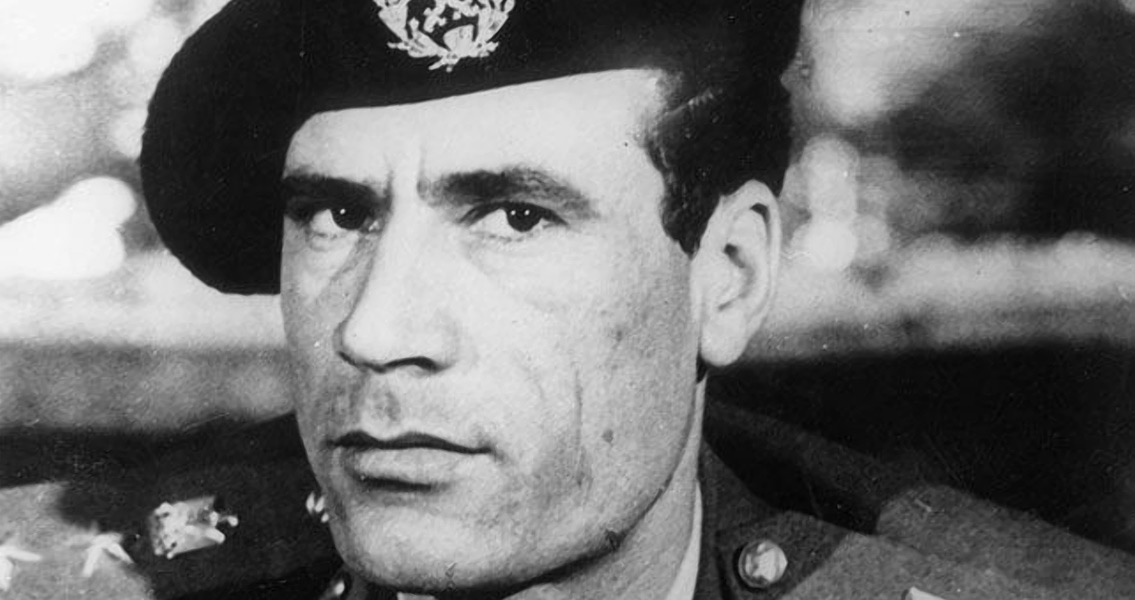<![CDATA[Muammar al-Gaddafi successfully lead a coup deposing the Libyan king on the 1st September, 1969. Appointed chairman of the new governing body of Libya, the Revolutionary Command Council, Gaddafi ruled the country for the next four decades until the Libyan Civil War of 2011. Hugely significant in shaping the course of Libyan history since the 1970s, Gaddafi also had a complex, and at times enigmatic relationship with the West. Just this week there have been suggestions that Tony Blair could be called to explain his relationship with Gaddafi to the British Parliament, following claims in David Cameron's biography that Blair wanted to "cut a deal" with Gaddafi towards the end of the Libyan Civil War. These dealings with the West were incredibly significant because of Libya's vast oil reserves and Gaddafi's decision to fund terrorist and militant groups around the world. Terrorist attacks such as the Lockerbie Bombing, or the bombing of a Berlin nightclub used by US military personnel, frequently brought Libya into conflict with the West. On the other hand, in the early twenty-first century there was something of a thawing of the relationship, as strategic agreements started to form between Libya and the United States. All of these complex foreign policies however, had their foundations in Gaddafi's complete seizure of power domestically. The son of a Bedouin farmer, Gaddafi was born in Qasr Abu Hadi, a rural area outside Sitre, in 1942. He attended both the University of Libya and the Benghazi Military Academy, completing his education in 1965 and enrolling in the army. Collaborating with other military leaders, Gaddafi, then a captain, plotted the overthrow of King Idris who was considered a reactionary force preventing change in Libya. The coup was bloodless, taking place while Idris was out of the country receiving treatment for a leg ailment in Turkey. The monarchy was abolished, and Idris went to Greece and then Turkey in search of asylum. A key motivator for the leaders of the coup was a sense that Libya's natural resources were being exploited for the benefit of foreigners. Significant oil reserves had been discovered in the late 1950s, but their extraction was organised by foreign companies who set prices to suit their own domestic market, and took half of all the profits from extraction. One of the first acts of Gaddafi's dictatorship was to force a renegotiation of the oil extraction deals with the West. Threatening to cut off the supply if his demands weren't met, famously claiming that "people who have lived without oil for 5,000 years can live without it again for a few years in order to attain their legitimate rights", Gaddafi's gamble paid off. Libya became the first developing country to secure a majority share of the profits from its own oil production. Gaddafi's rule was also characterised by his distinct political theories, which were published in his famous 'Green Book'. From the early seventies he set about creating a political system which broke Libya from the shackles of imperialism. In practice, the system installed an ultra-heirarchical form of government in the country. Popular Congresses were created around Libya, in theory to move government to a local level. In reality, however, these Congresses were powerless, and all authority was in the hands of Gaddafi and those within his close knit circle. Enforcing this system, Gaddafi installed a series of strict laws with harsh penalties. Advocating political ideas outside of those authorised by the state could result in the death penalty, as could protests against the ruling regime. Meanwhile, Jewish or Italian Libyans were expelled from the country, and features of Islamic law, such as the prohibition of alcohol, were implemented. Much of Libya's intelligentsia chose to live lives in exile rather than stay and witness the unfolding situation under Gaddafi's rule. Stories of torture, murder and shockingly long jail terms emerged from the country, both at the start of the 1970s but also well into the twenty first century. As the Arab Spring started to take hold in Tunisia and Egypt in 2010, Libyans began to rebel against Gaddafi's draconian dictatorship - setting in motion his eventual downfall.]]>
Gaddafi Seizes Power in Libya
